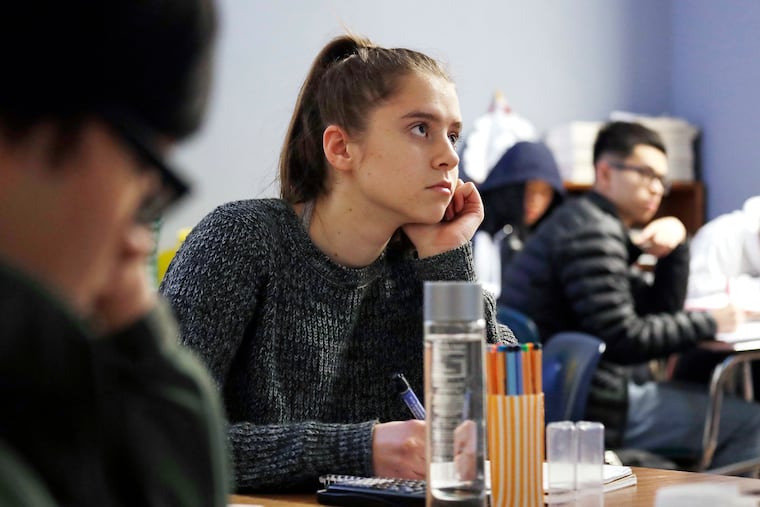Wake up, Pennsylvania: Teens need more sleep, later school start times | Opinion
American youth are running on empty.

Teenagers’ sleep time has been declining for over a center. A recent national study found that only one-fourth of middle and high school students get the nightly 8-to-10 hours of sleep that is recommended by the Centers for Disease Control and the National Sleep Foundation.
The outcome is a sleepy generation whose academics and health are suffering unnecessarily. One major step that some high schools are beginning to take that can make a difference is simply delaying school start time.
The biology of adolescents has shown that their bodies want a later bedtime and later arousal than is true of either younger children or adults. Many studies clearly demonstrate that delaying school start time not only results in significantly increased sleep time, but many other benefits-- from increased alertness to decreased lateness and absenteeism, better grades, less anxiety and depression, fewer car accidents and even fewer sports concussions.
While delaying the school bell to at least 8:30 a.m. to accommodate teens’ delayed biological clock is not the whole answer, it is one potential and realistic answer to the problem, as recommended first by the American Academy of Pediatrics in 2014 and subsequently by many other organizations. It isn’t just smart, it is a public health issue.
For the past eight months an advisory committee to the state legislature, has been studying how to implement later high school starts. Last week the Advisory Committee on Later School Start Times at Secondary Schools to the Pennsylvania Joint State Government Commission issued its report. The committee represented all stakeholders from school superintendents, high school principals, bus drivers, athletic coaches, independent schools, parents, students and more. The outcome is a report which summarizes the scientific evidence, and includes a survey of the Commonwealth‘s more than 500 school districts. It also reviewed experiences throughout the state and country, outlined obstacles to shifting start times, proposed practical solutions and sketched a thoughtful roadmap for school districts considering the change.
Pennsylvania is still waking high schoolers up early. A majority of school districts have high school start times earlier than 8 a.m. Only eight districts across the Commonwealth have secondary start times of the recommended 8:30 a.m. or later. Overall, charter schools and nonpublic schools have slightly later secondary school start times, but few meet the 8:30 a.m.- or- later goal.
However, the landscape is changing. According to the survey sent to all school districts in the state, at least 25 have delayed their secondary school start times since 2011. At least 28 other districts are publicly engaged in researching the matter, and at least 15 more report having had informal discussions at the administrative level about the suitability of delaying school start times.
Admittedly, there are many barriers to changing the hours of secondary school, including instructional requirements (state mandated number of days and hours of school), transportation (from coordination and logistics to bus driver shortages), athletics and other extracurricular activities, impact on elementary school students and the teens who have part-time jobs after school as well as impact on teachers and staff.
The time for action is now.
By changing school start times, we can begin to reverse the epidemic of inadequate rest with its adverse effects on teenagers’ academic productivity, school attendance, mental health, general well-being and other negative effects. We can improve grades, lower rates of anxiety and depression, even reduce driving accidents and increase athletic performance.
The advisory committee understood that there are many entrenched ideas and real impediments to change in such a large state with hundreds of districts ranging from small to large, from rural to urban and with variable resources, each with its unique set of needs. Unlike California, which recently passed a law mandating late secondary school openings throughout the state, the committee left the decision to individual districts.
Changing school start times is clearly not the only answer for reversing a century of declining sleep hours. But it is the most obvious and most effective public health response to the problem. The science behind adolescent sleep needs is clear; the devil is in the details. It is time to make a more successful, adolescent-friendly environment throughout the state.
Dr. Lawrence W. Brown is a pediatric neurologist and sleep medicine physician at the Children’s Hospital of Philadelphia and Associate Professor of Neurology and Pediatrics at the Perelman School of Medicine. He represented the PA chapter of the American Academy of Pediatrics on the Advisory Committee on Later School Start Times at Secondary Schools to the PA Joint State Government Commission.